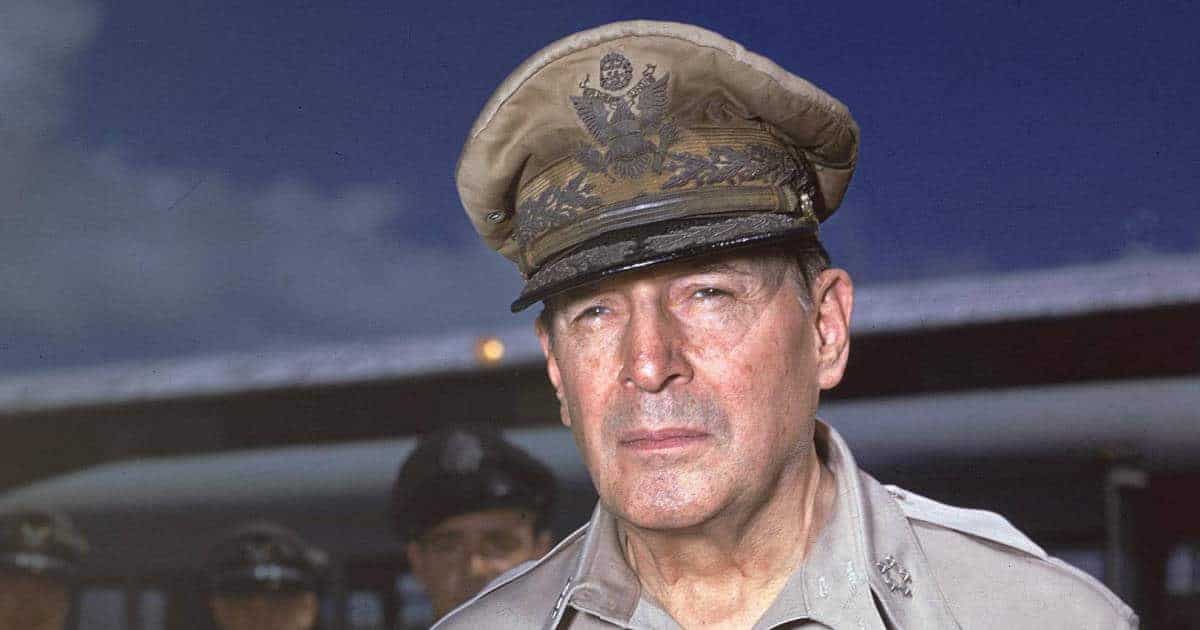On the surface, Douglas MacArthur appears to have had an extraordinarily successful military career. He attained the rank of five-star general and was the Field Marshal of the Philippine Army. MacArthur also won a variety of awards including the Medal of Honor, Distinguished Service Cross (three times), Silver Star (seven times), and the Purple Heart (twice) among other medals. However, MacArthur has not fared too well in the annals of history as a growing number of people believe he was an extremely overrated commander.
In fact, certain polls rate him among the worst American commanders alongside luminaries such as the treacherous Benedict Arnold and incompetent Ambrose Burnside. According to his critics, MacArthur was arrogant and insubordinate; he also has the unique distinction of quarreling with three presidents.
On the other hand, defenders of MacArthur claim that he displayed a near-flawless command performance in World War II and groomed some of America’s greatest commanders. If nothing else, MacArthur is certainly one of the most polarizing military figures of the twentieth century so let’s dig a little deeper into the life and times of the Gaijin Shogun.

Early Life
MacArthur was born in Little Rock, Arkansas in a military barracks on January 26, 1880. His father, Arthur MacArthur Jr., was a captain in the United States Army. His early years were spent moving to different Army posts in the Old West. According to MacArthur, he was able to shoot and ride before he could read and write. His family moved to Washington D.C. in 1889, and he attended the Force Public School.
After his father was transferred to San Antonio, Texas, in 1893, MacArthur enrolled in the West Texas Military Academy. As well as playing shortstop on the baseball team and as a quarterback on the football team, MacArthur was named valedictorian. Nonetheless, he was unable to gain a spot in the famous West Point Military Academy.
Unperturbed, the young MacArthur worked diligently and was finally accepted into West Point; he joined on June 13, 1899. He reached the level of First Captain by his third year and achieved the third highest academic score ever recorded at West Point as he graduated top of his class in June 1903. During his time at West Point, he was involved in a hazing controversy and was even called to testify in front of a Congressional committee in 1901.

MacArthur visited a number of countries including the Philippines, India, China, and Singapore during his early military career. He had received his first command in 1908 at Fort Leavenworth so by the time America entered World War I; MacArthur was already an experienced soldier. By 1915, MacArthur reached the rank of major in the War Department and in 1917, he was the colonel and chief of staff of the 42nd Division that first saw action in February 1918. MacArthur won several awards during the war including several Silver Stars. He was well on his way to the top, but his military career is marred by unsavory incidents.

